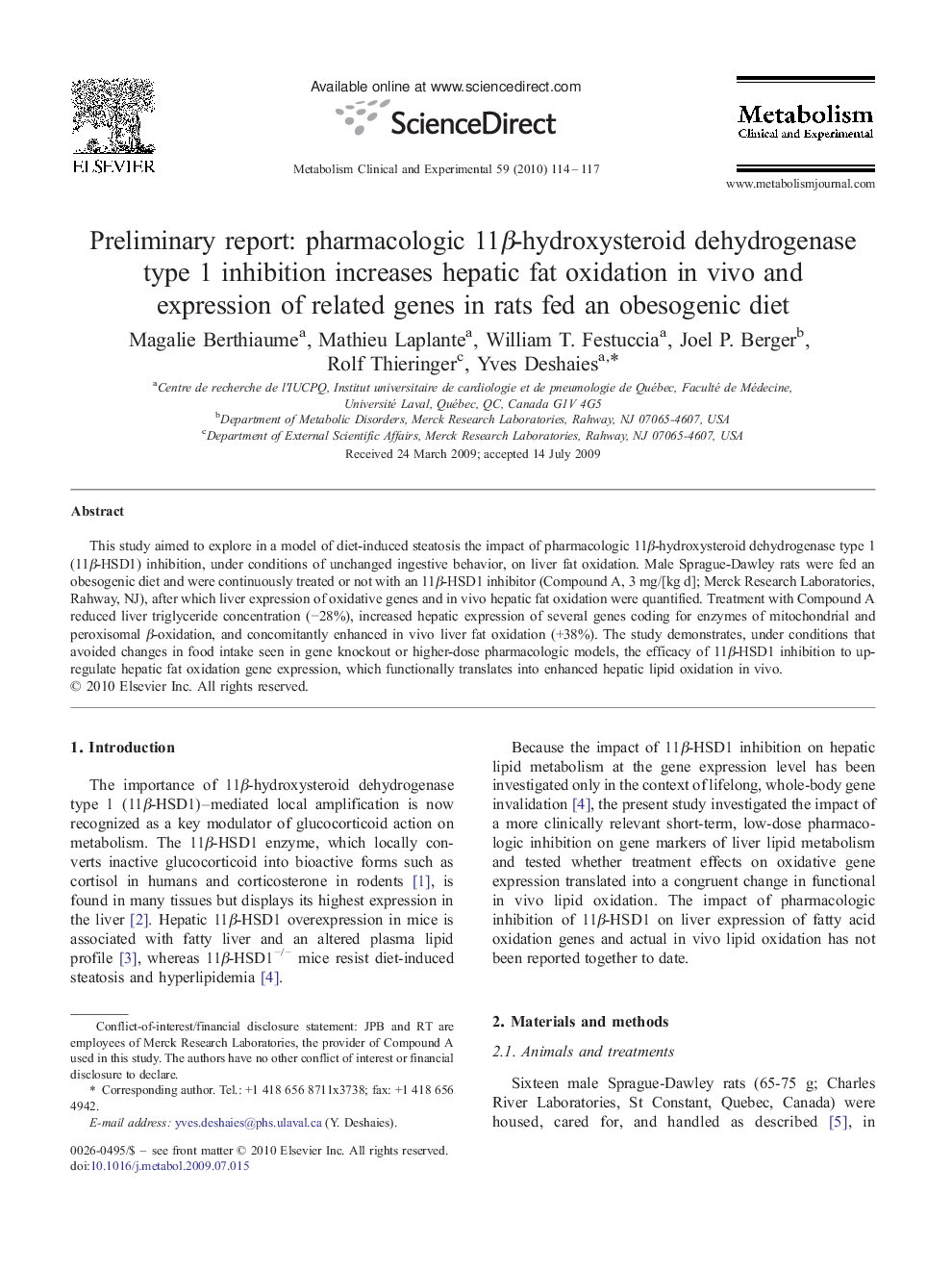| Article ID | Journal | Published Year | Pages | File Type |
|---|---|---|---|---|
| 2806351 | Metabolism | 2010 | 4 Pages |
Abstract
This study aimed to explore in a model of diet-induced steatosis the impact of pharmacologic 11β-hydroxysteroid dehydrogenase type 1 (11β-HSD1) inhibition, under conditions of unchanged ingestive behavior, on liver fat oxidation. Male Sprague-Dawley rats were fed an obesogenic diet and were continuously treated or not with an 11β-HSD1 inhibitor (Compound A, 3 mg/[kg d]; Merck Research Laboratories, Rahway, NJ), after which liver expression of oxidative genes and in vivo hepatic fat oxidation were quantified. Treatment with Compound A reduced liver triglyceride concentration (â28%), increased hepatic expression of several genes coding for enzymes of mitochondrial and peroxisomal β-oxidation, and concomitantly enhanced in vivo liver fat oxidation (+38%). The study demonstrates, under conditions that avoided changes in food intake seen in gene knockout or higher-dose pharmacologic models, the efficacy of 11β-HSD1 inhibition to up-regulate hepatic fat oxidation gene expression, which functionally translates into enhanced hepatic lipid oxidation in vivo.
Related Topics
Life Sciences
Biochemistry, Genetics and Molecular Biology
Endocrinology
Authors
Magalie Berthiaume, Mathieu Laplante, William T. Festuccia, Joel P. Berger, Rolf Thieringer, Yves Deshaies,
